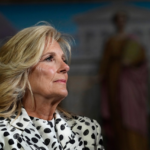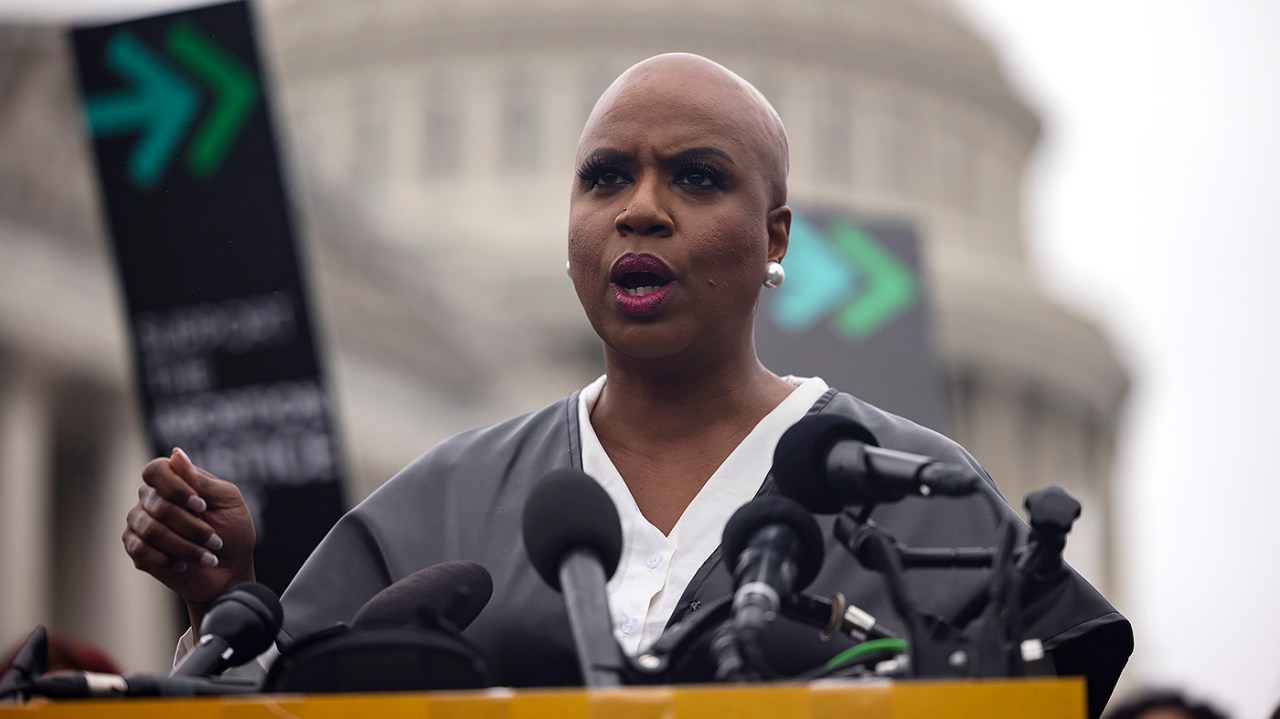Rep. Ayanna Pressley (D-Mass.) and Sen. Cory Booker (D-N.J.) have reintroduced the Maximizing Outcomes for Moms through Medicaid Improvement and Enhancement of Services (MOMMIES) Act in an effort to address consistent racial maternal health disparities and mortality rates.
The bill, originally introduced by the two legislators in 2019, would push for more affordable health care for pregnant people by expanding Medicaid coverage for postpartum people to a full year instead of 60 days after giving birth and expanding Medicaid coverage for pregnant people to services outside of pregnancy-related services.
The goal of the legislation is to help cap the percentage of pregnancy-related deaths. In the United States, more than 80 percent of pregnancy-related deaths are preventable, according to the Centers for Disease Control and Prevention. Despite this, Black birthing people are three times more likely to die from pregnancy issues than white women.
Congressional members including the Black Maternal Health Caucus have been working to address these disparities for some time. The caucus was first created in 2019 and has worked to pass a 13-bill package called the Momnibus Act since.
“My paternal grandmother died in the 1950s while giving birth, and it is absolutely damning that decades later, the Black maternal morbidity crisis in America is still killing our loved ones and destabilizing our families,” Pressley said in a statement.
“With the Supreme Court’s cruel Dobbs decision only exacerbating this crisis, Congress must pass our bill to promote community-based, holistic approaches to maternity and post-partum care so that every pregnant person is treated with the dignity and respect they deserve during and after their pregnancy,” she added, referring to the Supreme Court decision that overturned the Roe v. Wade ruling.
“Maternal health justice is a racial justice issue and a matter of life and death, and we must make comprehensive, culturally-congruent reproductive care a reality for all.”
In addition to Medicaid services, the MOMMIES Act looks to create and invest in culturally competent care.
The legislation calls for establishing medical care homes, birth centers and health facilities in underserved communities under a racial equity lens and with a trauma-informed approach.
The MOMMIES Act would also instruct Medicaid and the Children’s Health Insurance Program (CHIP) to issue guidance on community-based doula care.
“The United States spends more on health care than any other nation, but we still have the highest rate of maternal mortality among our peer countries,” said Booker.
“We must ensure that no person, regardless of their background, faces inequities or disparities when accessing or receiving maternal care. This legislation is an important step towards addressing our nation’s health disparities and promoting equitable maternal health care for all.”
The legislation has support from a host of advocacy groups, including the Black Mamas Matter Alliance, March of Dimes and In Our Own Voice: National Black Women’s Reproductive Justice Agenda.
Earlier this year, In Our Own Voice issued its 2023 Black Reproductive Justice Policy Agenda, calling for some of these issues to be prioritized. Regina Davis Moss, president and CEO of the organization, applauded Pressley and Booker for reintroducing the bill.
“Informed by the Reproductive Justice framework, this bill is a critical step in ensuring Black women, birthing people, and their babies can thrive during pregnancy and beyond,” Moss said.
Copyright 2023 Nexstar Media Inc. All rights reserved. This material may not be published, broadcast, rewritten, or redistributed.
Author Profile
- "Center" Bias Rating
- The Hill is an American newspaper and digital media company based in Washington, D.C. that was founded in 1994. Focusing on politics, policy, business and international relations, The Hill's coverage includes the U.S. Congress, the presidency and executive branch, and election campaigns.
Latest entries
 HeadlinesOctober 22, 2023'Calculated misery': Here's why airlines want you to be uncomfortable
HeadlinesOctober 22, 2023'Calculated misery': Here's why airlines want you to be uncomfortable HeadlinesOctober 19, 2023Pressley, Booker Reintroduce MOMMIES Act to address maternal health disparities
HeadlinesOctober 19, 2023Pressley, Booker Reintroduce MOMMIES Act to address maternal health disparities HeadlinesJune 14, 2023Jill Biden warns against Trump: 'We know what’s in store if these MAGA Republicans win'
HeadlinesJune 14, 2023Jill Biden warns against Trump: 'We know what’s in store if these MAGA Republicans win' HeadlinesJune 13, 202311 dead in Russian missile attack on Zelensky's hometown
HeadlinesJune 13, 202311 dead in Russian missile attack on Zelensky's hometown

